Ramadan in Dubai is when the city’s otherwise fast-paced routine slows down and its conservative Muslim roots come to the fore. Business hours are reduced, and nightlife becomes refreshingly impressive. Does your upcoming Dubai visit coincide with Ramadan (March 12 to April 10, 2024), or are you curious to find out if it is the right time to travel to Dubai? This comprehensive guide will enlighten you on everything about Ramadan in Dubai.
What is the Holy Month of Ramadan?
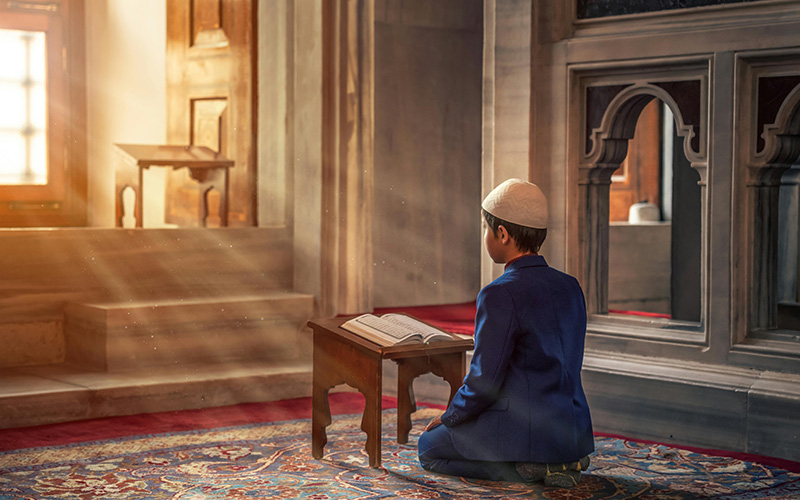
Ramadan is the ninth month of the Islamic calendar. It lasts 29 or 30 days, depending on lunar sightings, but it does not fall on the exact Gregorian date annually. It is because the 12-month lunar calendar is a cycle of 354 or 355 days, causing the fasting month to begin 10 to 12 days earlier every year. The Islamic year now running is 1445 A.H., where its Ramadan month will coincide with Gregorian months from March 12 to April 10, 2024.
What Is Special About Ramadan
It is considered the holiest of all, as it’s the month of sacrifice and giving. Being one of the core five pillars of Islam, it is when Muslims observe fasting (saum in Arabic) from pre-dawn to dusk namaz (prayer) times while abstaining from eating, drinking, and indulging in all kinds of minor and major sins. The main idea behind fasting is to get closer to Allah (God) and strengthen one’s Iman (faith) and Taqwa (righteousness) while also understanding the agony of the poor and needy.
Is Fasting in Ramadan Mandatory for All Muslim Adults and Children
Fasting during Ramadan is obligatory for all healthy Muslim adults. That said, the elderly and sick people, travelers, menstruating women, pregnant and lactating mothers, and kids who haven’t reached puberty are exempt from it.
Business and School Hours in Dubai during Ramadan
Public and private sector employees can expect a flexible work schedule during Ramadan in Dubai. Contrary to the standard eight-hour working time (as mandated by UAE labor law), they will work only six hours this month, honoring its reverence and significance. The same applies to the city’s educational institutions, where they implement a modified schedule with students attending classes for a condensed period of five hours or even less. All these allow Muslims and non-Muslims to strike a harmonious balance between their professional commitments and the observance of this spiritual month.
Dress Code During Ramadan in Dubai
Although there is no specific dress code to adhere to during Ramadan in Dubai, keep in mind that modest clothing, covering knees and shoulders, is always preferred here, being the emirate a part of the Islamic country. That said, make sure that you check for any particular dress etiquette to be observed before traveling to certain attractions, like mosques.
The weather in March and April is generally pleasant; however, it may get cold during the initial parts of March, especially on your evening or overnight desert safari. It’s, therefore, wise to carry a shrug or a jacket for your Dubai visit in Ramadan. Apart from these, having a shawl on hand will be helpful when visiting the UAE’s conventional or religious places.
Things to Know During Ramadan in Dubai
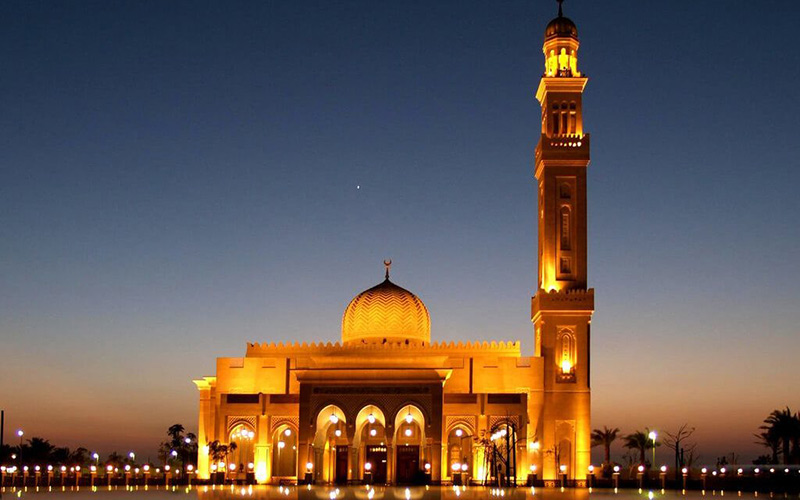
Fasting Hours
The first day of fasting (which is expected to be on March 12) will start at 5:18 a.m. and last until approximately 6:30 p.m., so the total fasting hours will be around 13 hours and 15 minutes. The timing slightly varies as the days progress, increasing the total number of fasting hours by a few minutes.
A Typical Dubai Ramadan Day
During this holy month, the entire city stops its frenetic pace to take a breath. It lets out all the stress of running a commercial giant like Dubai and goes into partial hibernation.
The Suhoor Meal
Just before dawn, Muslims awake in their homes and hotels in sleepy camaraderie. They perform their ablutions and pray together. Then they eat the dawn meal, after which Ramadan in Dubai fasting begins. During fasting, Muslims will not eat or drink anything, not even water, for the whole day (from dawn to dusk). There will be no snacking or smoking during this period. During the weekdays, Suhoor is shared with family, but on weekends, most Dubaiites head to specially set-up Suhoor tents or restaurants to partake of a light meal before the first light of the day. The Fajr prayer takes place after Suhoor, following which Muslims are ready to fast for the rest of the day until the Iftar meal (after the Maghrib prayer).
The Fast during the Day: Siyam
The word ‘Siyam’ means ‘to refrain’ in Arabic, which is apt because refraining is what every Muslim does between dawn and sunset. While refraining from eating, drinking, or smoking is a form of physical restraint, Ramadan’s restrictions go deeper. In other words, the spiritual meaning of this holy month is more profound as it entails people refraining from evil thoughts, wrong actions, or inappropriate talk.
Siyam is a way of cleaning oneself of all kinds of impurities and focusing one’s emotional state on expressing gratitude to God and professing atonement for sins committed. By fasting during the entire day, the Muslim puts himself in the shoes of those who are less fortunate. This is the reason why Muslims participate so much in charity during Ramadan.
Midfa al Iftar
A day’s fasting will typically end with the call of Azan for the Maghrib (dusk time) prayer. In Dubai, apart from the Islamic prayer call, there is a unique tradition called Midfa al Iftar to end the fast. It is the ritual culminating a day’s fasting with cannons firing. This ceremonial firing has existed in the city since the 1960s. You can now watch it in some of the city’s prime locations, such as Burj Khalifa, Madinat Jumeirah’s Fort Island, Expo City, Dubai City Walk, and the prayer grounds of Al Baraha and Al Mankhool.
The Iftar Meal
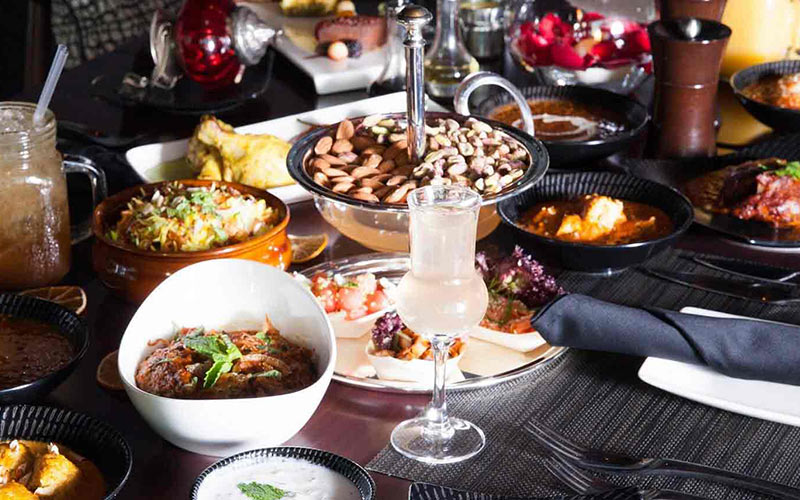
The roar of cannons or the adhan (call to prayer) of the Maghrib prayer signals the end of the day’s fast, and Iftar is proclaimed. With a sip of water and a few dates, Muslims break the fast as they replenish their energy levels and regain the precious minerals lost during the day. Homes and restaurants are lit and decorated. Charming tents and vibrant Ramadan night markets throughout the city put up gastronomical feasts to break the day’s fast.
Here are a few dos and don’ts for tourists about spending time during Ramadan in Dubai.
Dos during Ramadan
- Visiting Dubai during Ramadan is perfectly fine. The city does not shut down. You just have to stick to a few laws and regulations.
- You can make the most of its attractions with the right pass packaged with the Burj Al Arab tour, Atlantis Aquaventure tickets, a desert safari, a dhow cruise, and more.
- Muslims are not supposed to eat, smoke, or drink between sunrise and sunset during Ramadan. While non-Muslim tourists and Dubai residents are not required to fast, they must respect the spiritual significance of fasting and avoid eating, drinking, or smoking in public.
- Alcohol is not banned, but it’s best to drink discreetly in your hotel room if you want to. Don’t be caught outside drinking alcohol of any kind.
Don’ts during Ramadan
- The dress code is very conservative during Ramadan. Women are expected to cover their shoulders and their knees.
- It’s a good idea for women to always carry a shawl or cover-up with them to cover their shoulders or hips as required.
- Men need to wear full-length pants in public, and shorts are allowed only on beaches unless they are at least knee-length. If you ignore this rule during Ramadan, you can expect uncomfortable stares or sometimes even a fine.
- Do not eat, drink, smoke, or even chew gum between sunrise and sunset. This rule applies to tourists as well. If you’re in public, it is best not to flout this rule.
- If you’re not accustomed to fasting, think ahead and store some groceries in your room to make quick lunches.
- Remember that restaurants won’t serve lunch until the Iftar meal. Failure to observe this fasting rule in public may cause you to pay a fine.
- Bars don’t open before 8 p.m. or just after sunset. Clubs will be closed during Ramadan, or if they’re open, they’ll be quiet. You can drink at a bar after the sun goes down, though.
What to Do in Dubai During Ramadan
Visit a Mosque
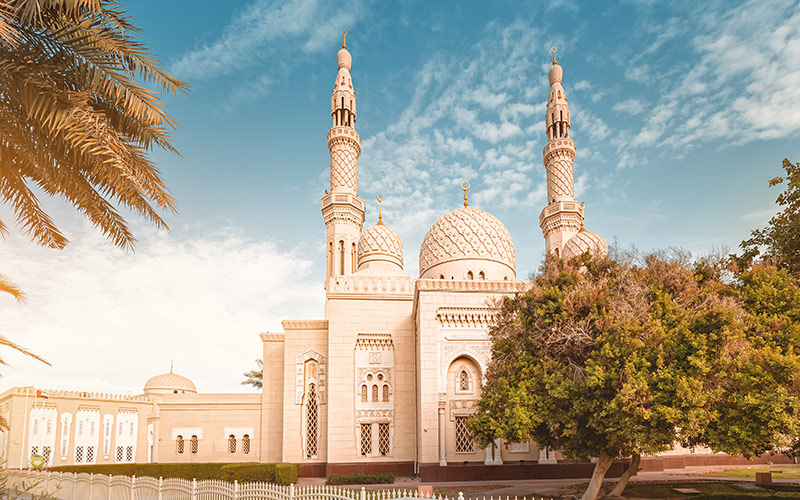
Visit a mosque during Ramadan to understand the religious importance of the festival and what it means to Dubai’s Muslim population. For example, you’re welcome to visit the Jumeirah Mosque and understand how Muslims use Ramadan to focus on the previous year’s actions and cleanse themselves physically, emotionally, and psychologically. To gain a deeper spiritual understanding of Ramadan, you can join one of the many informative mosque tours conducted by the Sheikh Mohammed Centre for Cultural Understanding. This mainly includes a trip to the timeless Jumeirah Mosque. You can also tour the Sheikh Zayed Grand Mosque in Abu Dhabi.
Join an Iftar Meal
Enjoy the Iftar meal in the evening when Muslims break their fast. This meal is served at all hotels after sunset. Enjoy traditional Emirati and Arabic foods such as dates and slow-cooked meats with rice. Grand Iftar tents are set up at beachside hotels such as the Jumeirah Beach Hotel and the Atlantis; you can join the Muslims in celebrating Iftar each evening with a shisha pipe, cups of coffee, and a grand feast.
Be Part of Ramadan Nights in Global Village
Global Village Dubai needs no introduction! It is the region’s greatest seasonal attraction. This season is special because the Global Village has launched several exciting programs to celebrate the spirit of Ramadan. The best thing is that it allows you to experience the Ramadan traditions of different parts of the world. And, of course, don’t miss the Ramadan Nights here, rife with plentiful shopping, dining, and entertainment options.
Take Advantage of the Quieter Side of Dubai
During Ramadan, the city is relatively empty. Taxi cabs and transport options are aplenty so you can roam the city to your heart’s content minus the crowds.
It’s definitely the least ‘touristy’ month in Dubai. This means no lines at major attractions, and the malls will be fair without the rush. Swallow this – it’s actually a breeze getting tickets to the Burj Khalifa during Ramadan; that’s how empty the city becomes! If you want to enjoy Dubai without the rush of tourists and expats everywhere, this is the best time.
Enjoy the Best of Dubai on a budget!
Given that the city is half empty during Ramadan, even prime hotel accommodations are available at excellent discounts. Traveling to Dubai on a budget has never been easier! With fabulous Ramadan in Dubai tourist discounts at hotels and shopping malls, attractions, and even public transport, you can save money while holidaying in Dubai. Some prime hotels even offer Iftar and Suhoor meals as a part of their Dubai Ramadan special packages. You can also look forward to enjoying discounted activities and visiting the record-breaking structure at a slashed rate with Burj Khalifa ticket offers.
Dubai Tours during Ramadan
Isn’t it great that you can blend watching the gigantic tower in the world and other major attractions along with experiencing the warmth and peace of Dubai during Ramadan? It is a month with fewer crowds, no hassle, and a quieter ambiance compared to the busiest part of the year. As a result, you can stay at high-end hotels, play in theme parks, and ascend Burj Khalifa – all at a very inexpensive price and with easy availability. Here are some of the best Dubai tours during Ramadan:
- Burj Khalifa
- IMG Worlds of Adventure
- Dubai Palm Cruise Tour
- Aquaventure Water Park
- Dinner Cruise
- Dubai Parks & Resorts
- Desert Safari, Camel ride, and BBQ Dinner
FAQs
1. Is Ramadan a good time to visit Dubai?
Ramadan is the best month to visit Dubai to experience the culture without chaos. The prices of hotels and attractions are slashed, and a handful of tourists are roaming around, making it the perfect season for budget travelers.
2. What are the main Ramadan meals?
Suhoor and Iftar are the staple Ramadan meals. Muslims take Suhoor before dawn to prepare for the fast, while Iftar is taken at sunset to break the fast.
3. What follows Ramadan in Dubai?
The culmination of Ramadan marks the celebration of Eid Al Fitr, one of Dubai’s most awaited religious festivals. Refer to our exclusive guide to learn more about things to do for Eid Al Fitr in Dubai.
4. Do non-Muslims fast during Ramadan in Dubai?
Non-Muslims are not required to fast during this month in Dubai. But, as a respect towards it, they must refrain from eating or drinking in the public.
5. What are the top places and experiences this month?
Visit religious points of interest (like Dubai’s Jumeirah Mosque and Abu Dhabi’s Sheikh Zayed Grand Mosque), join an enlightening cultural tour organized by SMCCU (Sheikh Mohammed Centre for Cultural Understanding), shop at Ramadan markets, and savor a lavish Iftar meal at the dedicated spots, like Asateer at Atlantis, The Palm.
6. What are the rules in Dubai during Ramadan?
- Dress conservatively.
- Do not eat or drink in public during the hours of daylight.
- Don’t play loud music in your car or on the streets.
- Don’t photograph Iftar traditions without permission.
- Don’t indulge in PDA.
7. Can you eat in public in Dubai during Ramadan?
Non-Muslims do not have to fast, but they must refrain from eating, drinking, or smoking in public during the daytime during Ramadan. You can still get food in hotels and malls. It gets lively during the evening with grand Iftar celebrations.
8. Can I wear shorts in Dubai during Ramadan?
No, it is essential to respect the dress standards in Ramadan. Never wear shorts, revealing dresses, low necklines, sleeveless tees, or short skirts in public places.
9. Are restaurants open in Dubai during Ramadan?
Most dining areas remain open during business hours and serve food to non-Muslims, particularly in food courts and hotels. Many changes have occurred in the last few years, such as many restaurants and eating establishments being permitted to open without black-out curtains for the first time.
Apart from Ramadan and Eid Al Fitr, Dubai becomes the most festive during Eid Al Adha. Need inspiration for things to do in the UAE during Eid Al Adha holidays? Our dedicated page covers it all.
Conclusion
The holy month of Ramadan is when Muslims set aside all their material thoughts and desires and focus on their spiritual side. Fasting makes them rise above bodily needs and focus on cleaning their souls of sin and guilt. Everyone practices forgiveness, tolerance, and charity. People embrace each other without prejudice with a heartfelt Ramadan Kareem!
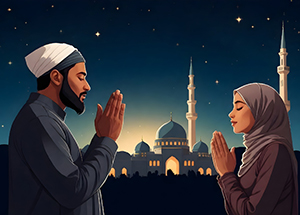
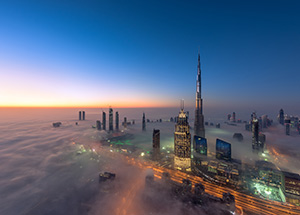
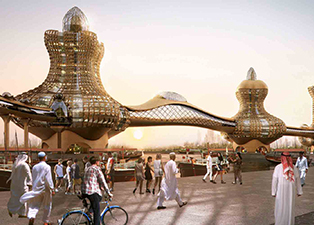






Ramadan is best time for cultural celebrations and experience spirituality. The city´s vivid atmosphere enhanced by the Ramadan decorations at night is simply unforgettable for tourists and residents.
Ramadan is the best time to soak in the Arabian culture and community spirit.
Dubai during Ramadan turns into a center of spirituality. From the beautiful Ramadan tents serving traditional dishes to the peaceful serene atmosphere of the mosques, this sacred month of year captivates one and all.
Visitors can enjoy lots of cultural experiences during the month Ramadan in Dubai. Exploring the lively night markets is best to divulge into the diverse cultural heritage of the city.
The energy during Ramadan is simply amazing. Exploring the bustling night markets and iftar gatherings and witnessing the community’s unity and generosity left a profound impact on me.
Ramadan in Dubai provides a good opportunity to experience the values of compassion, unity, and hospitality.
My cousins invited me to Dubai for Ramadan, and it was a wonderful experience to soak in the warmth and joy of the city during this holy month. I witnessed an amazing bonding between families and people.
Ramadan brings all friends and foes together. It is the time when people reflect and indulge in act of generosity and infuse a sense of togetherness.
I enjoyed visiting the crowded souks, iftar gatherings, and tranquil atmosphere of mosques. It was the best cultural experience for me.
Ramadan can change anyone spiritually.